Better Addiction Care Blogs
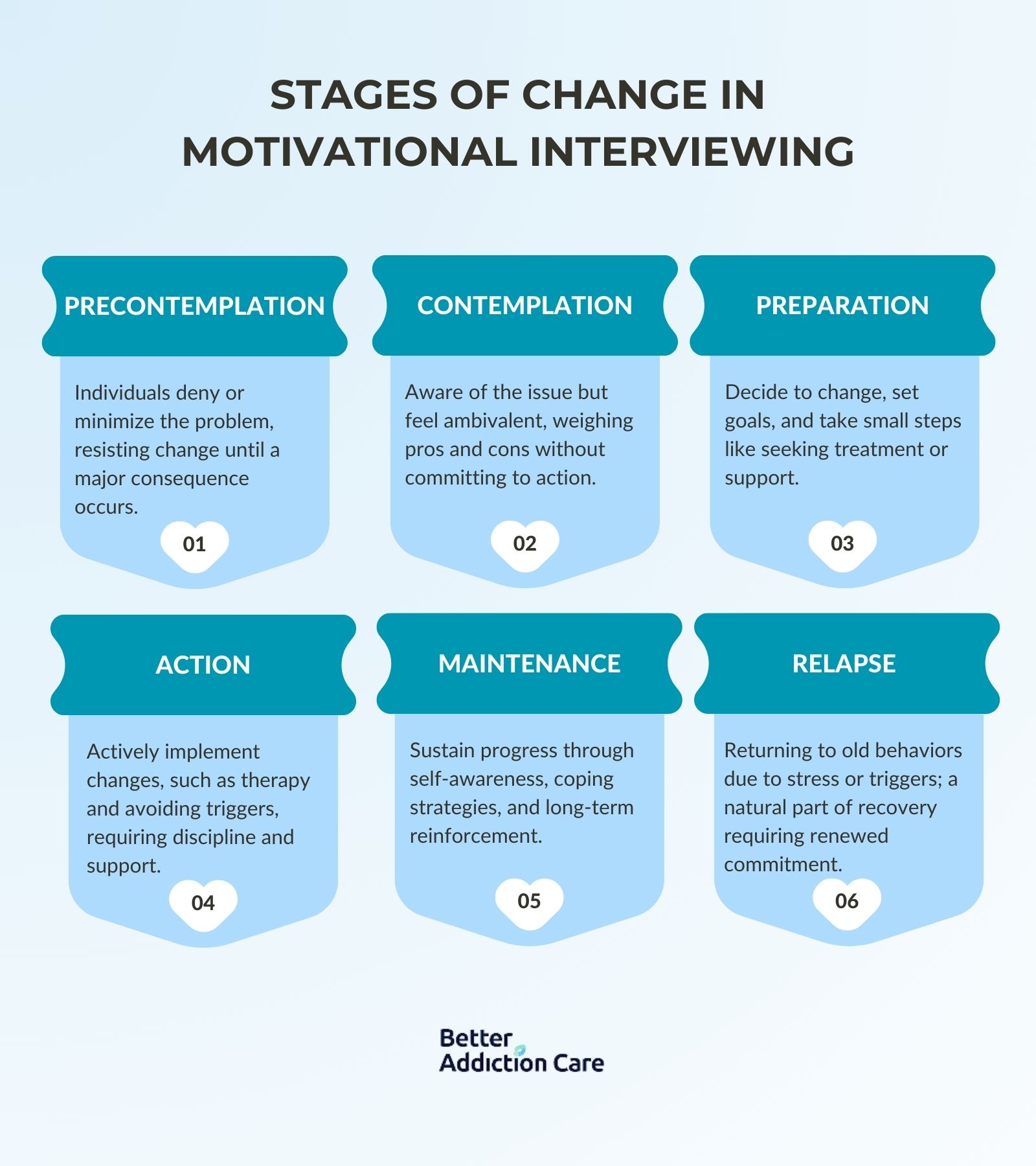
Motivational Interviewing (MI) is designed to enhance motivation for change by resolving ambivalence. It is particularly effective in helping individuals explore their motivations and commitment to changing behaviors like substance use or mental health issues.
Motivational Interviewing (MI) is designed to enhance motivation for change by resolving ambivalence. It is particularly effective in helping individuals explore their motivations and commitment to changing behaviors like substance use or mental health issues.
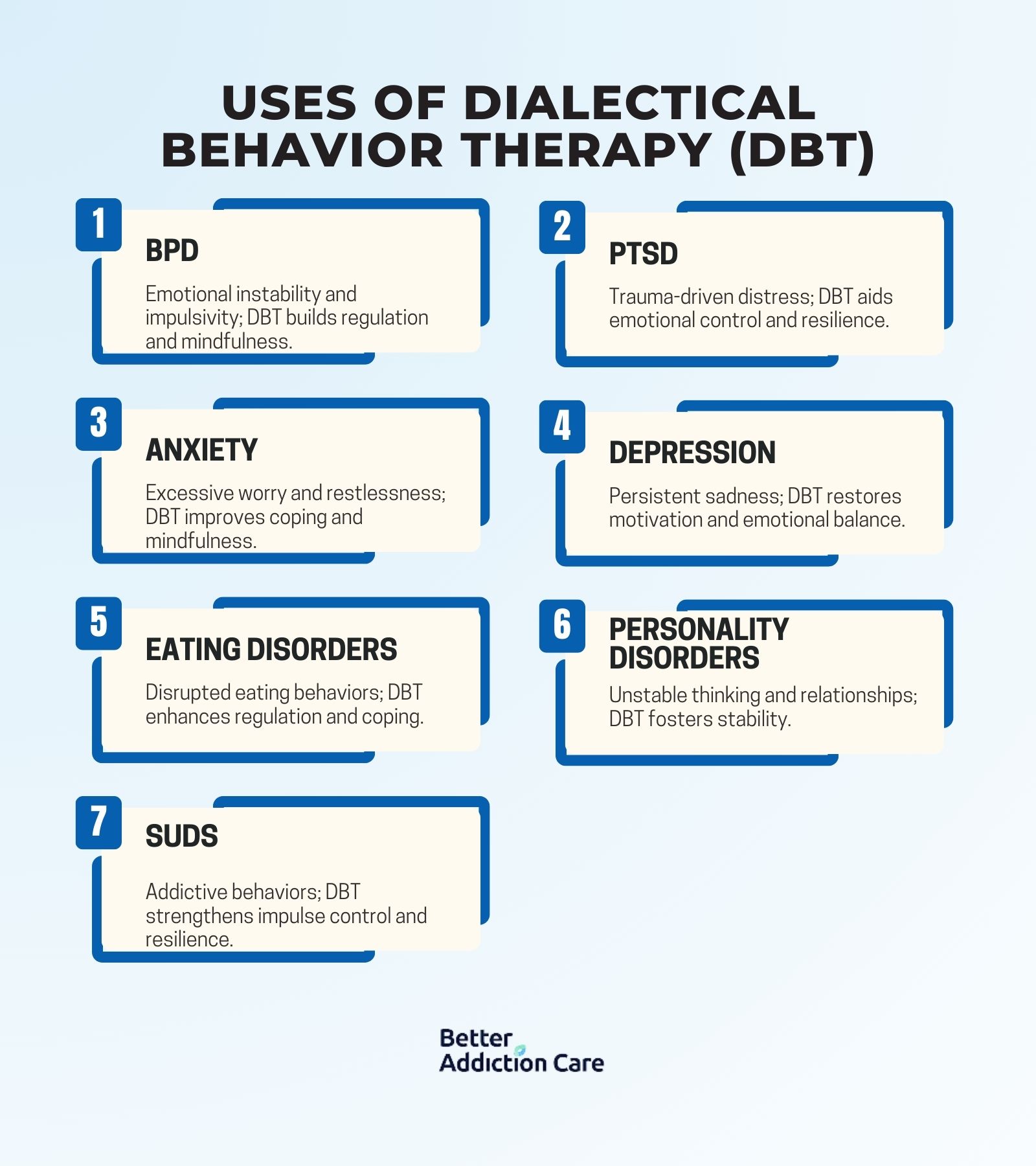
Dialectical Behavior Therapy (DBT) helps individuals regulate emotions, tolerate distress, and improve behaviors, making it highly effective for mental health and addiction treatment. According to a study by Linehan et al.
Dialectical Behavior Therapy (DBT) helps individuals regulate emotions, tolerate distress, and improve behaviors, making it highly effective for mental health and addiction treatment. According to a study by Linehan et al.
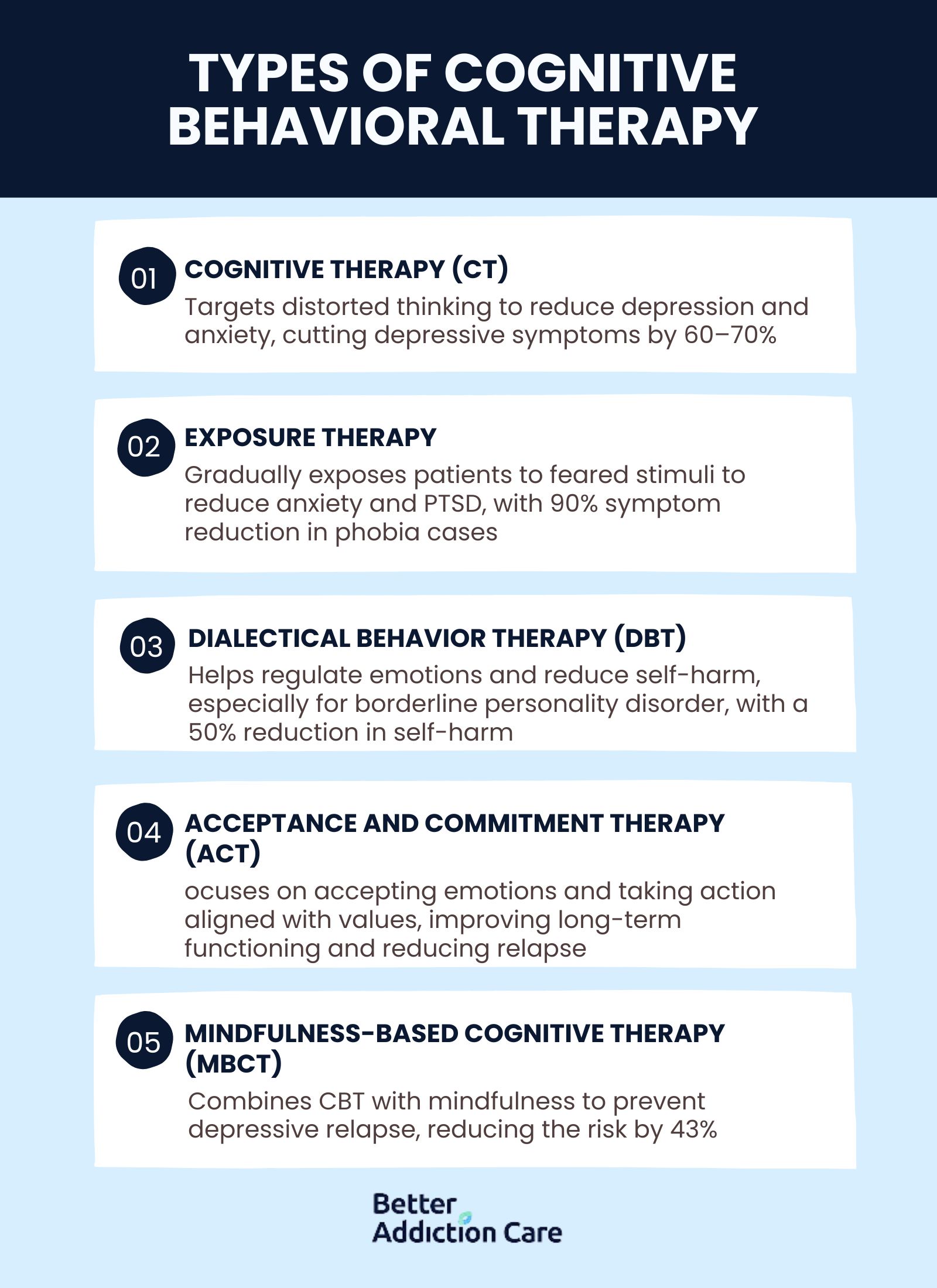
Cognitive Behavioral Therapy (CBT) focuses on identifying and modifying the thought patterns and behaviors that lead to and sustain addictive behavior. It emphasizes active participation, practical skill development, and consistent practice through a structured form of therapy led by trained therapists.
Cognitive Behavioral Therapy (CBT) focuses on identifying and modifying the thought patterns and behaviors that lead to and sustain addictive behavior. It emphasizes active participation, practical skill development, and consistent practice through a structured form of therapy led by trained therapists.
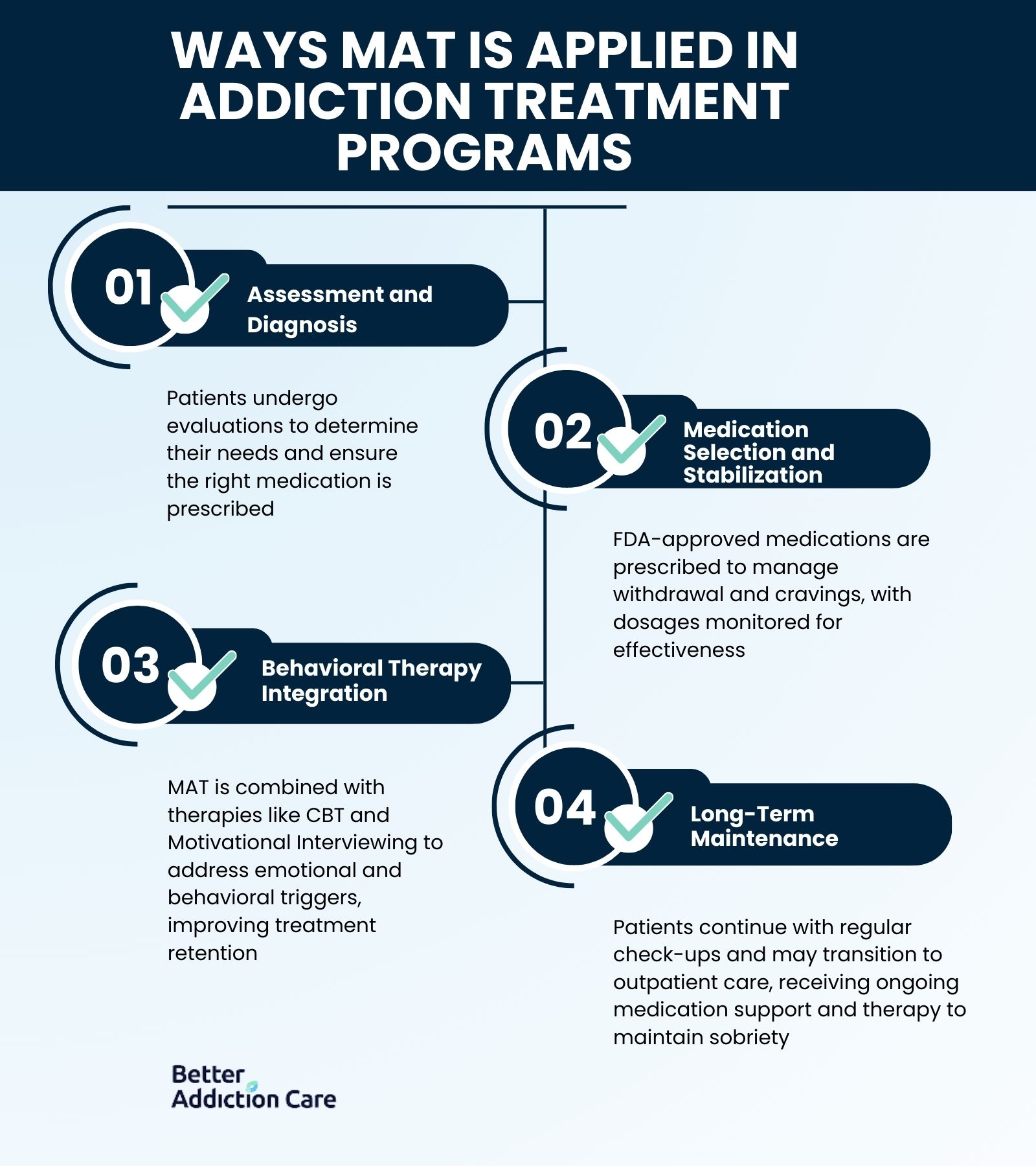
Medication-assisted treatment (MAT) combines FDA-approved medications with behavioral therapies to address both the physical and psychological aspects of addiction. The goal of MAT is relapse prevention, withdrawal management, and sustained recovery, providing a whole-patient approach that supports individuals through detoxification, cravings, and long-term sobriety.
Medication-assisted treatment (MAT) combines FDA-approved medications with behavioral therapies to address both the physical and psychological aspects of addiction. The goal of MAT is relapse prevention, withdrawal management, and sustained recovery, providing a whole-patient approach that supports individuals through detoxification, cravings, and long-term sobriety.
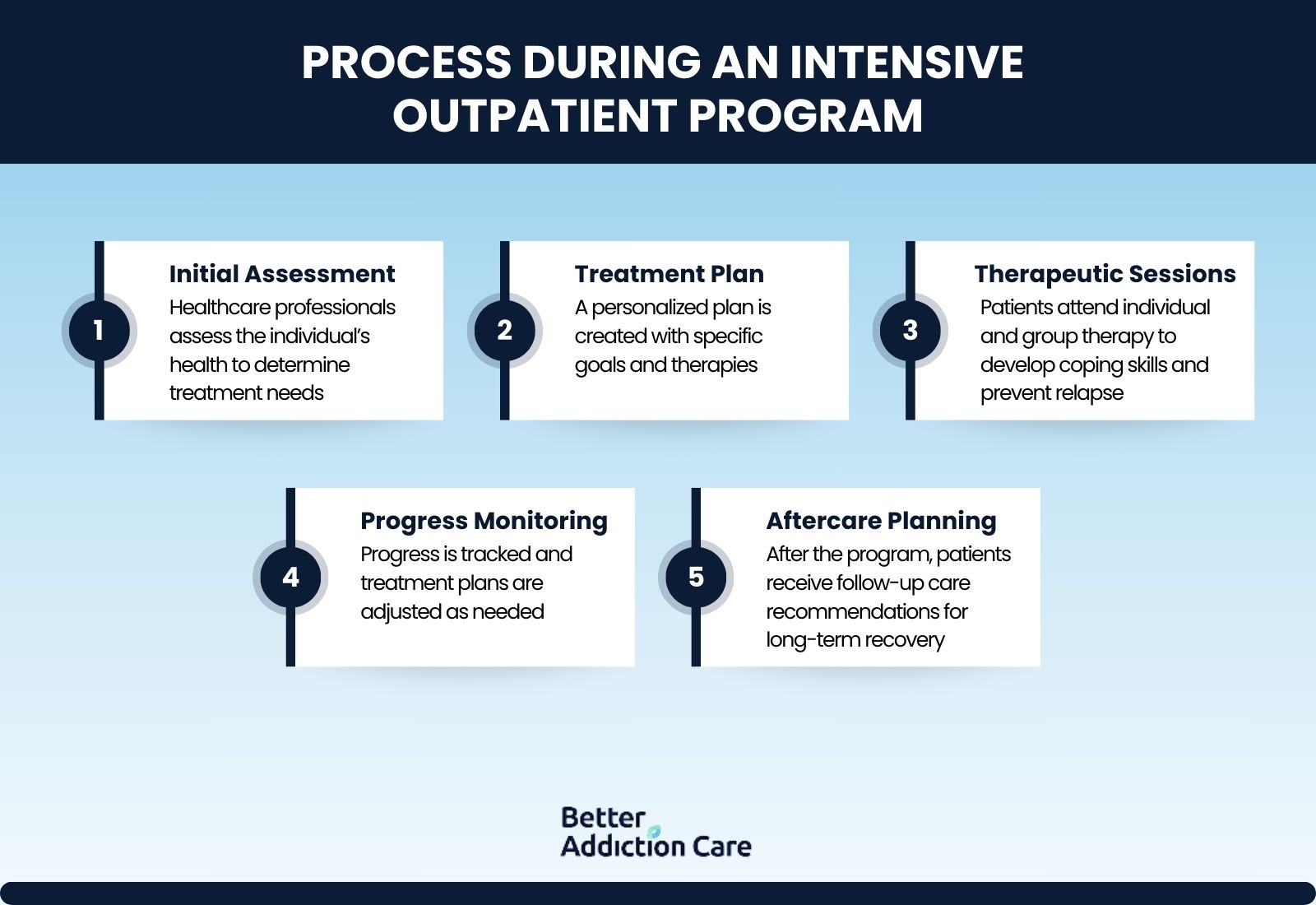
Intensive Outpatient Rehab (IOP) is designed to help individuals recover from substance use or mental health disorders while allowing them to continue their daily activities, such as work or school. According to the National Institute on Drug Abuse (NIDA), IOP is critical in recovery because it provides flexible, intensive therapy that helps individuals address underlying issues, manage triggers, and reduce the risk of relapse.
Intensive Outpatient Rehab (IOP) is designed to help individuals recover from substance use or mental health disorders while allowing them to continue their daily activities, such as work or school. According to the National Institute on Drug Abuse (NIDA), IOP is critical in recovery because it provides flexible, intensive therapy that helps individuals address underlying issues, manage triggers, and reduce the risk of relapse.
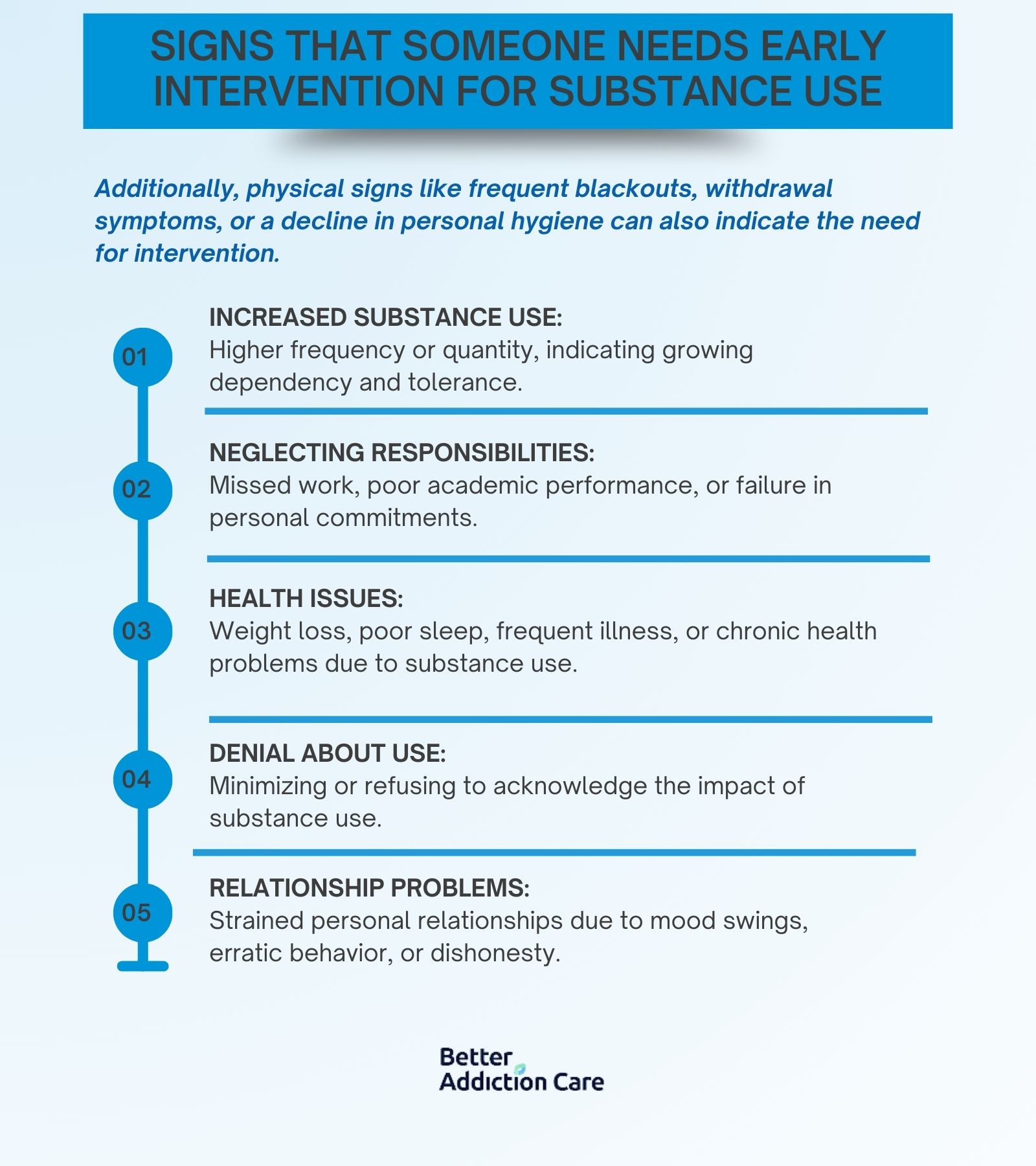
Early intervention refers to the process of identifying and addressing substance use behaviors before they escalate into full addiction, using preventive strategies such as counseling, education, and behavioral therapy.
Early intervention refers to the process of identifying and addressing substance use behaviors before they escalate into full addiction, using preventive strategies such as counseling, education, and behavioral therapy.
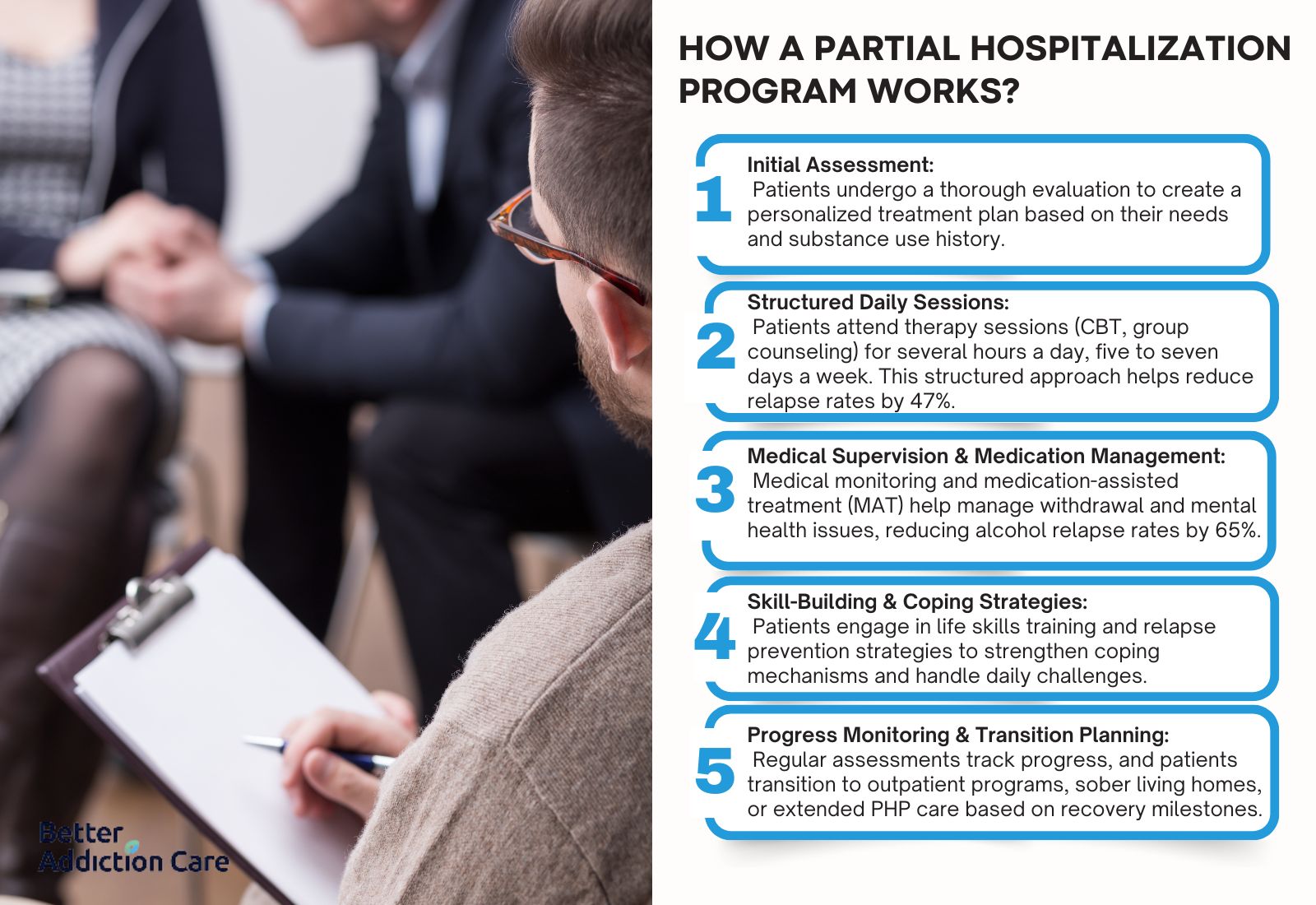
Partial Hospitalization Programs (PHP) provide structured therapy, medical supervision, and relapse prevention while allowing individuals to live at home. According to a study by the National Institute on Drug Abuse (NIDA) 2022, individuals in PHPs have a 54% higher treatment retention rate compared to those in standard outpatient programs.
Partial Hospitalization Programs (PHP) provide structured therapy, medical supervision, and relapse prevention while allowing individuals to live at home. According to a study by the National Institute on Drug Abuse (NIDA) 2022, individuals in PHPs have a 54% higher treatment retention rate compared to those in standard outpatient programs.
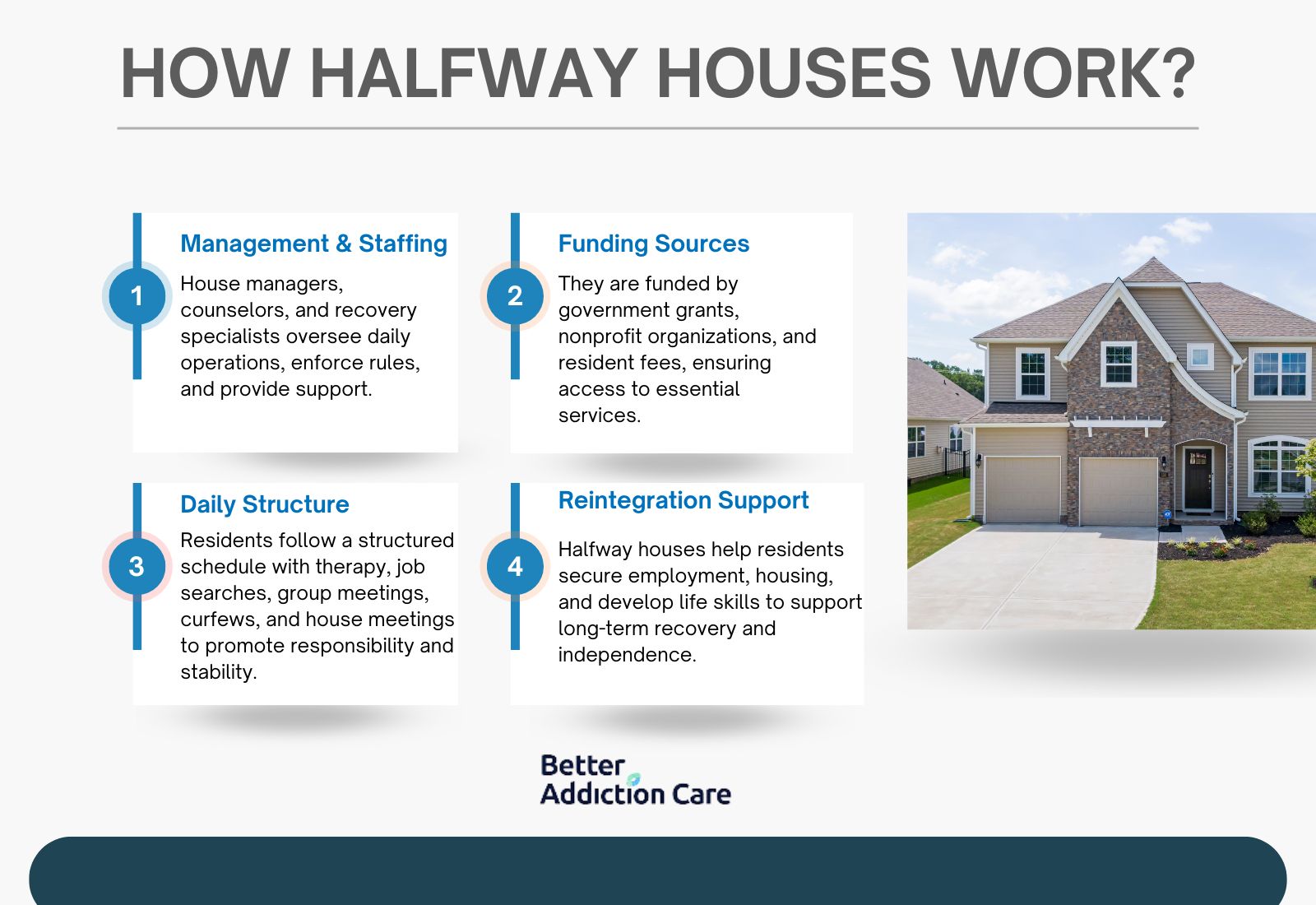
A halfway house is a structured, substance-free living environment designed to support individuals transitioning from treatment to independent, sober living. These residences serve as a bridge between intensive addiction treatment and full reintegration into society, offering stability, accountability, and continued recovery support.
A halfway house is a structured, substance-free living environment designed to support individuals transitioning from treatment to independent, sober living. These residences serve as a bridge between intensive addiction treatment and full reintegration into society, offering stability, accountability, and continued recovery support.
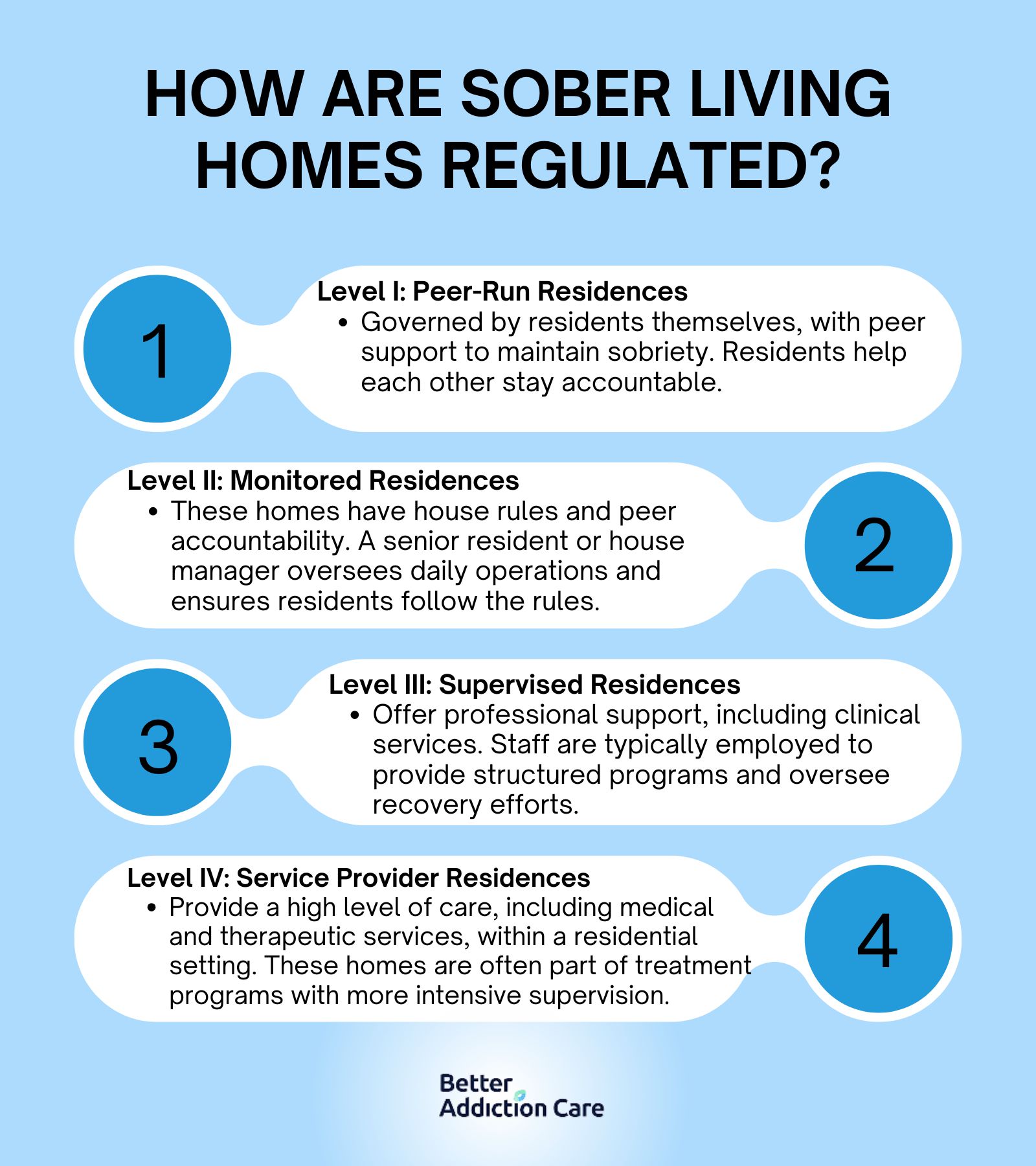
Sober living homes provide a safe living environment for individuals in addiction recovery, offering structured housing as a transitional step between rehab and independent living. These residences, also known as halfway houses or recovery homes, support sobriety by enforcing sober living home rules such as drug testing, curfews, and participation in support groups. Studies show that sober living homes improve long-term recovery outcomes by reducing relapse rates and increasing social stability.
Sober living homes provide a safe living environment for individuals in addiction recovery, offering structured housing as a transitional step between rehab and independent living. These residences, also known as halfway houses or recovery homes, support sobriety by enforcing sober living home rules such as drug testing, curfews, and participation in support groups. Studies show that sober living homes improve long-term recovery outcomes by reducing relapse rates and increasing social stability.
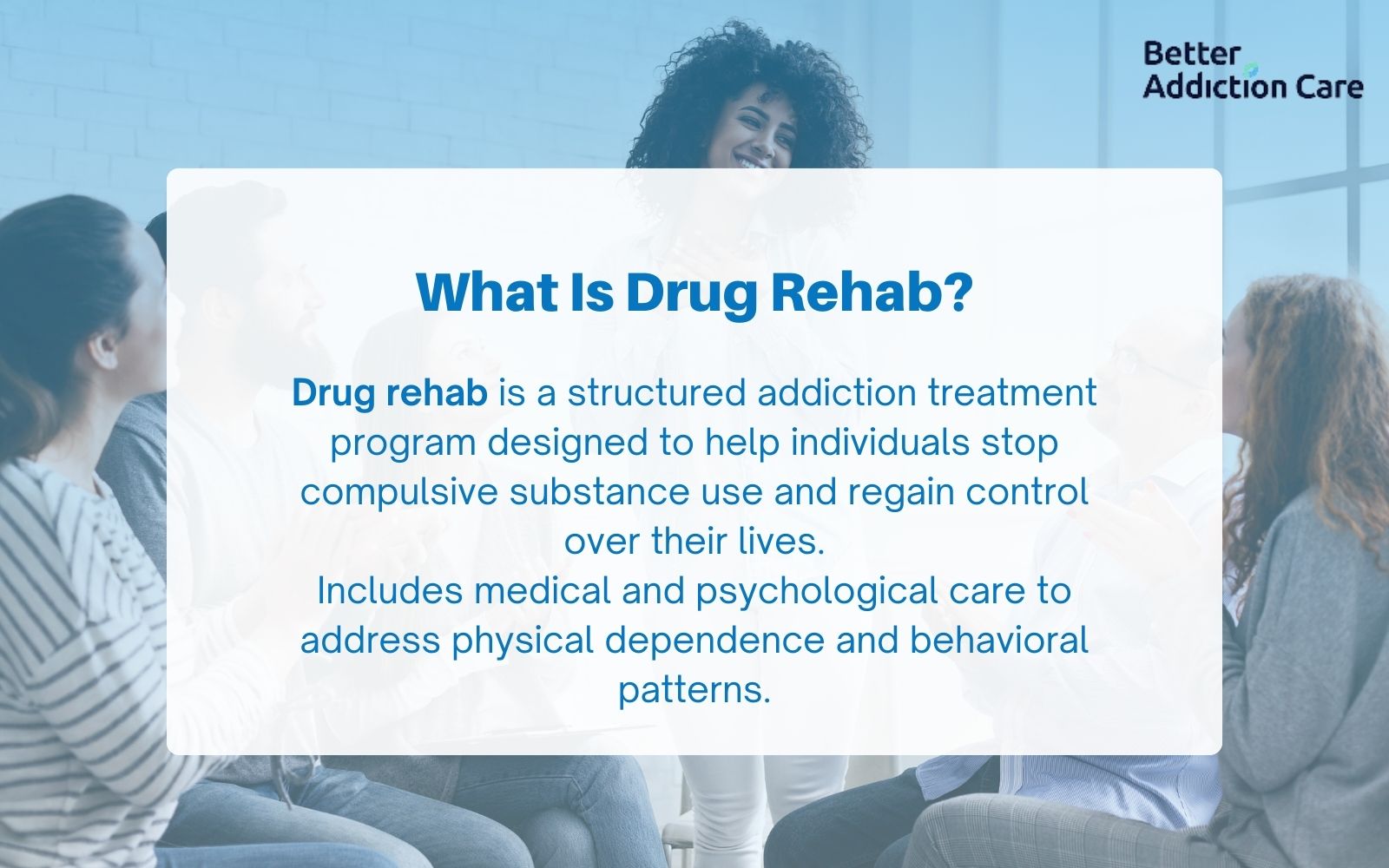
Drug rehab is a structured process of addiction treatment that combines medical and psychological care to help individuals recover from substance dependence. The need for structured addiction rehab programs has grown due to rising substance use disorders, requiring specialized approaches for lasting recovery. According to the Substance Abuse and Mental Health Services Administration (SAMHSA), in 2023, more than 95% of individuals who needed drug rehabilitation did not receive it.
Drug rehab is a structured process of addiction treatment that combines medical and psychological care to help individuals recover from substance dependence. The need for structured addiction rehab programs has grown due to rising substance use disorders, requiring specialized approaches for lasting recovery. According to the Substance Abuse and Mental Health Services Administration (SAMHSA), in 2023, more than 95% of individuals who needed drug rehabilitation did not receive it.
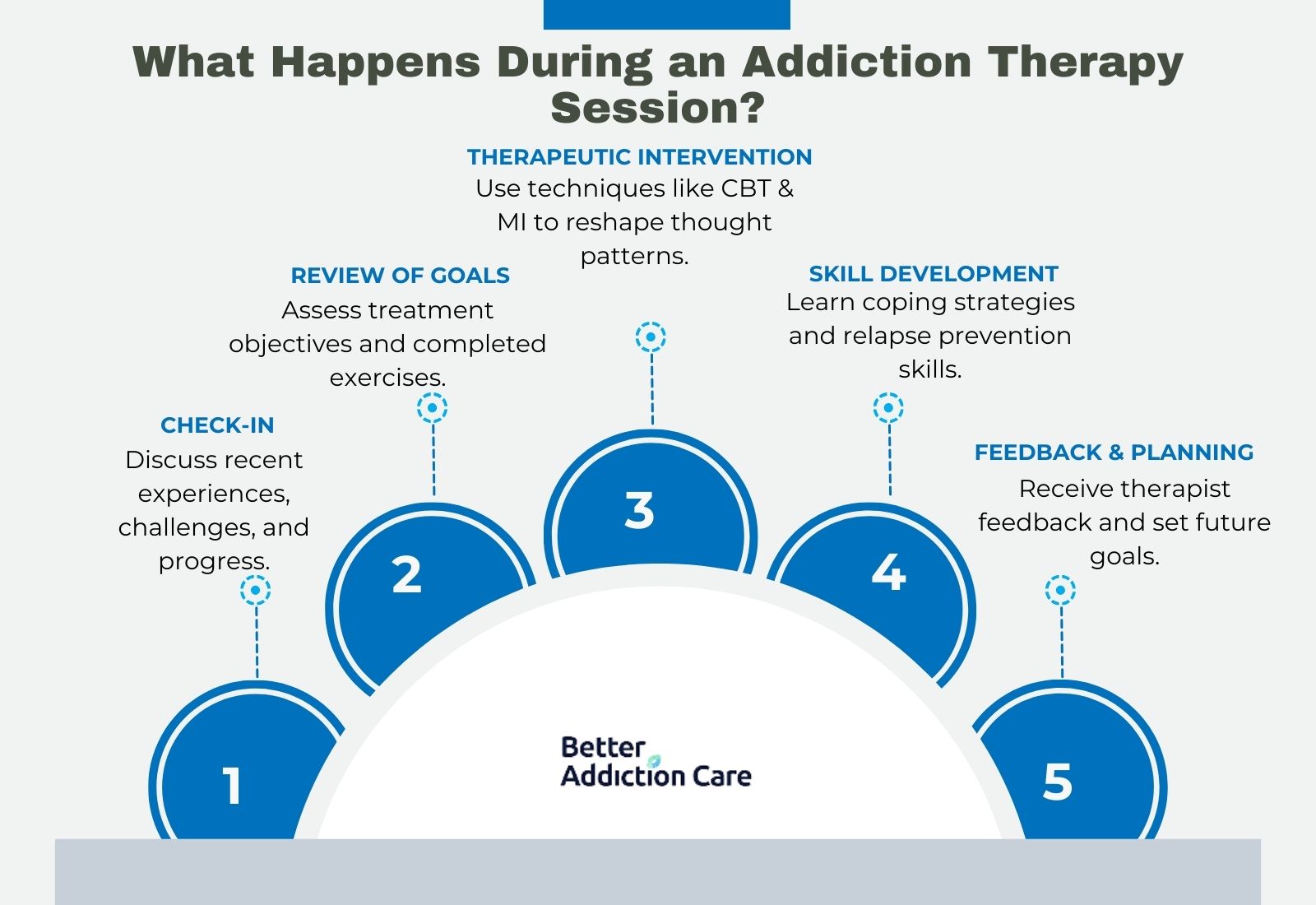
Addiction therapy is a structured form of treatment designed to help individuals overcome substance use disorders by addressing the psychological, emotional, and behavioral aspects of addiction. It involves evidence-based interventions that guide individuals through recovery, improve mental health, and reduce the risk of relapse.
Addiction therapy is a structured form of treatment designed to help individuals overcome substance use disorders by addressing the psychological, emotional, and behavioral aspects of addiction. It involves evidence-based interventions that guide individuals through recovery, improve mental health, and reduce the risk of relapse.
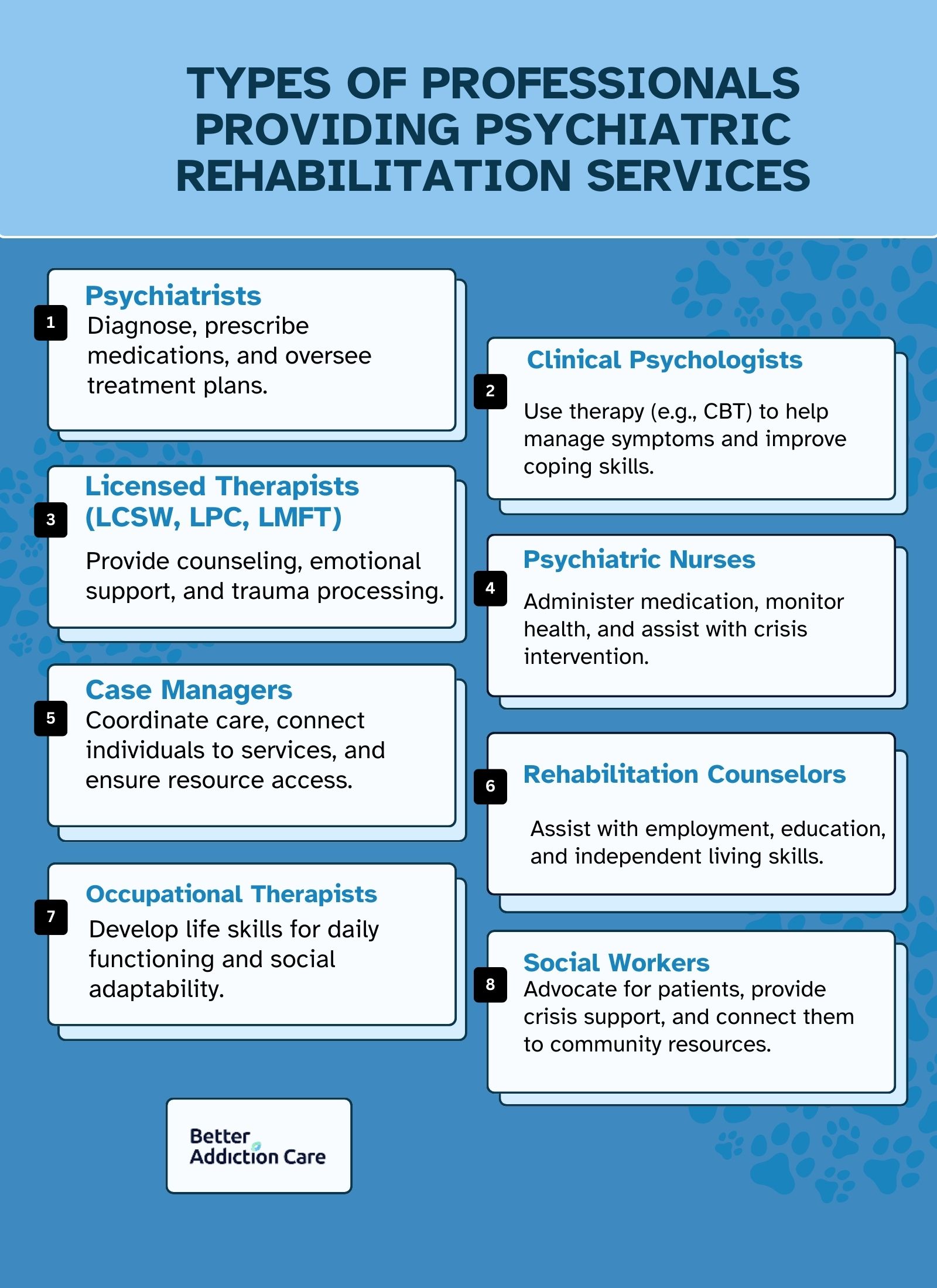
Psychiatric rehabilitation helps individuals with severe mental health conditions regain independence, develop coping skills, and reintegrate into society. Psychiatric rehabilitation focuses on improving emotional, social, and vocational functioning through structured interventions, combining therapy, medication management, and life skills training to enhance overall well-being.
Psychiatric rehabilitation helps individuals with severe mental health conditions regain independence, develop coping skills, and reintegrate into society. Psychiatric rehabilitation focuses on improving emotional, social, and vocational functioning through structured interventions, combining therapy, medication management, and life skills training to enhance overall well-being.
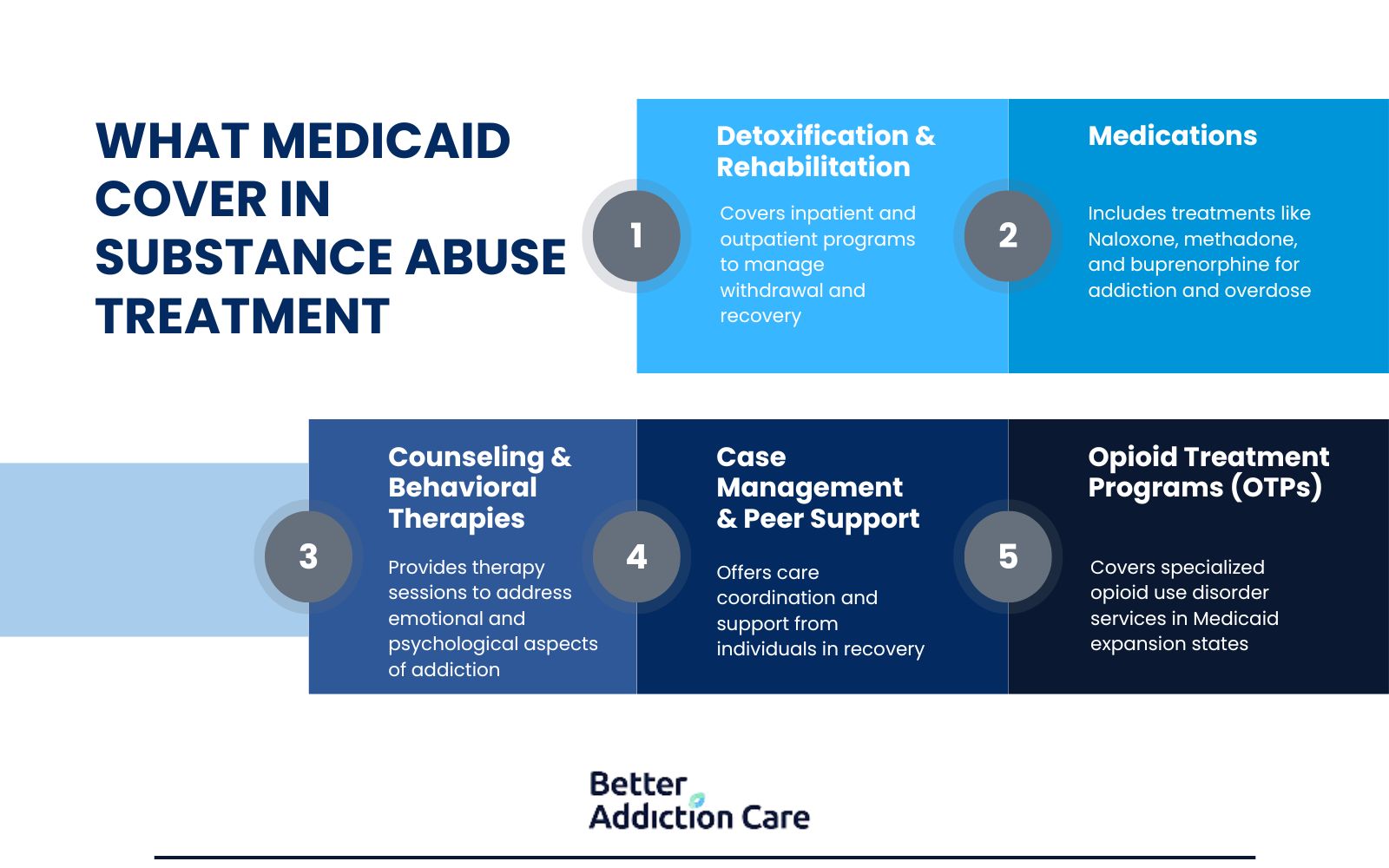
Medicaid is a government-funded health insurance program that provides access to essential healthcare services, including addiction treatment, to low-income individuals and families, with coverage varying by state.
Medicaid is a government-funded health insurance program that provides access to essential healthcare services, including addiction treatment, to low-income individuals and families, with coverage varying by state.
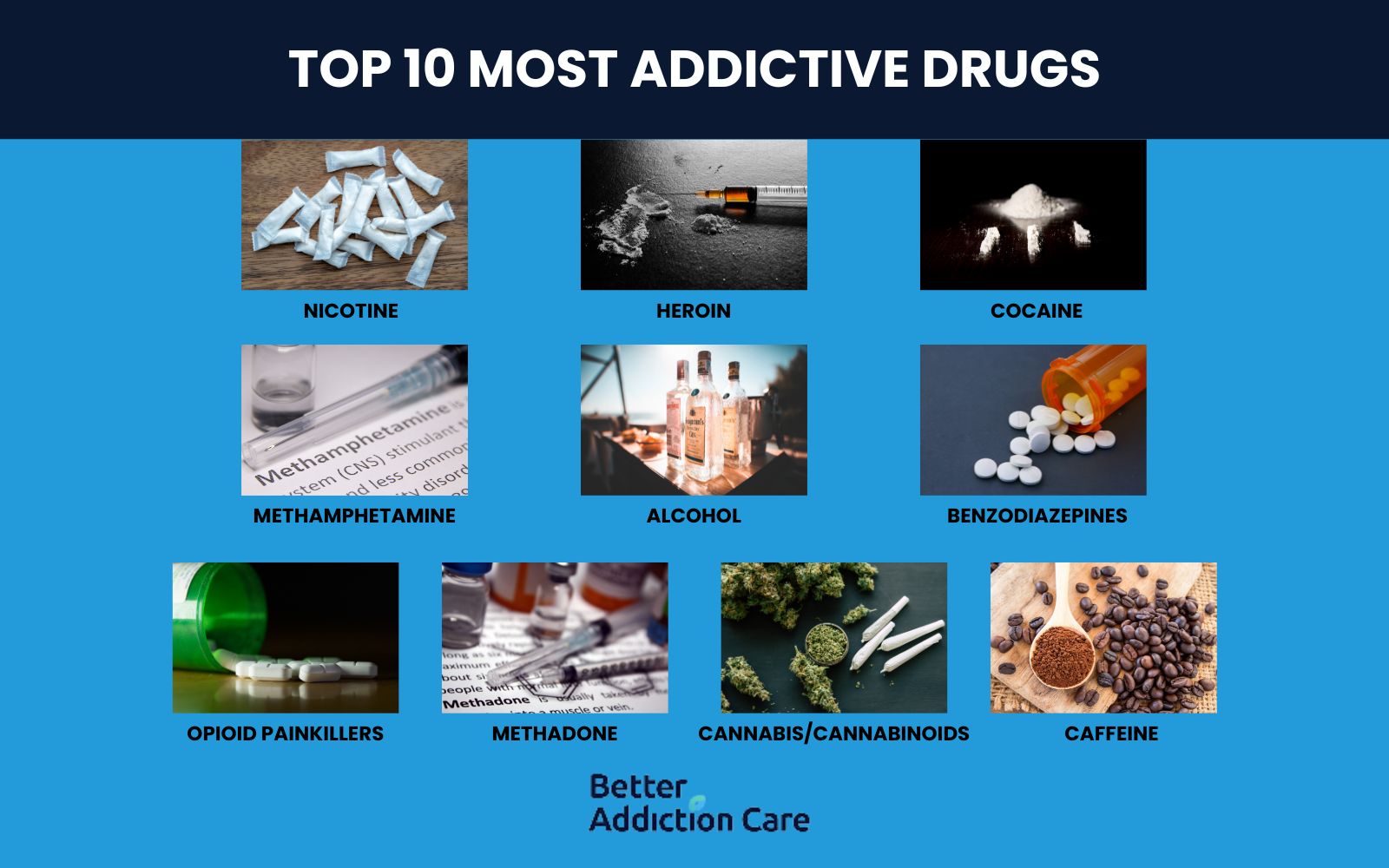
The top 10 most addictive drugs include nicotine, heroin, cocaine, methamphetamine, alcohol, benzodiazepines, opioid painkillers, methadone, cannabis, and caffeine. Addiction to these substances poses significant challenges, impacting you and your loved ones alike.
The top 10 most addictive drugs include nicotine, heroin, cocaine, methamphetamine, alcohol, benzodiazepines, opioid painkillers, methadone, cannabis, and caffeine. Addiction to these substances poses significant challenges, impacting you and your loved ones alike.
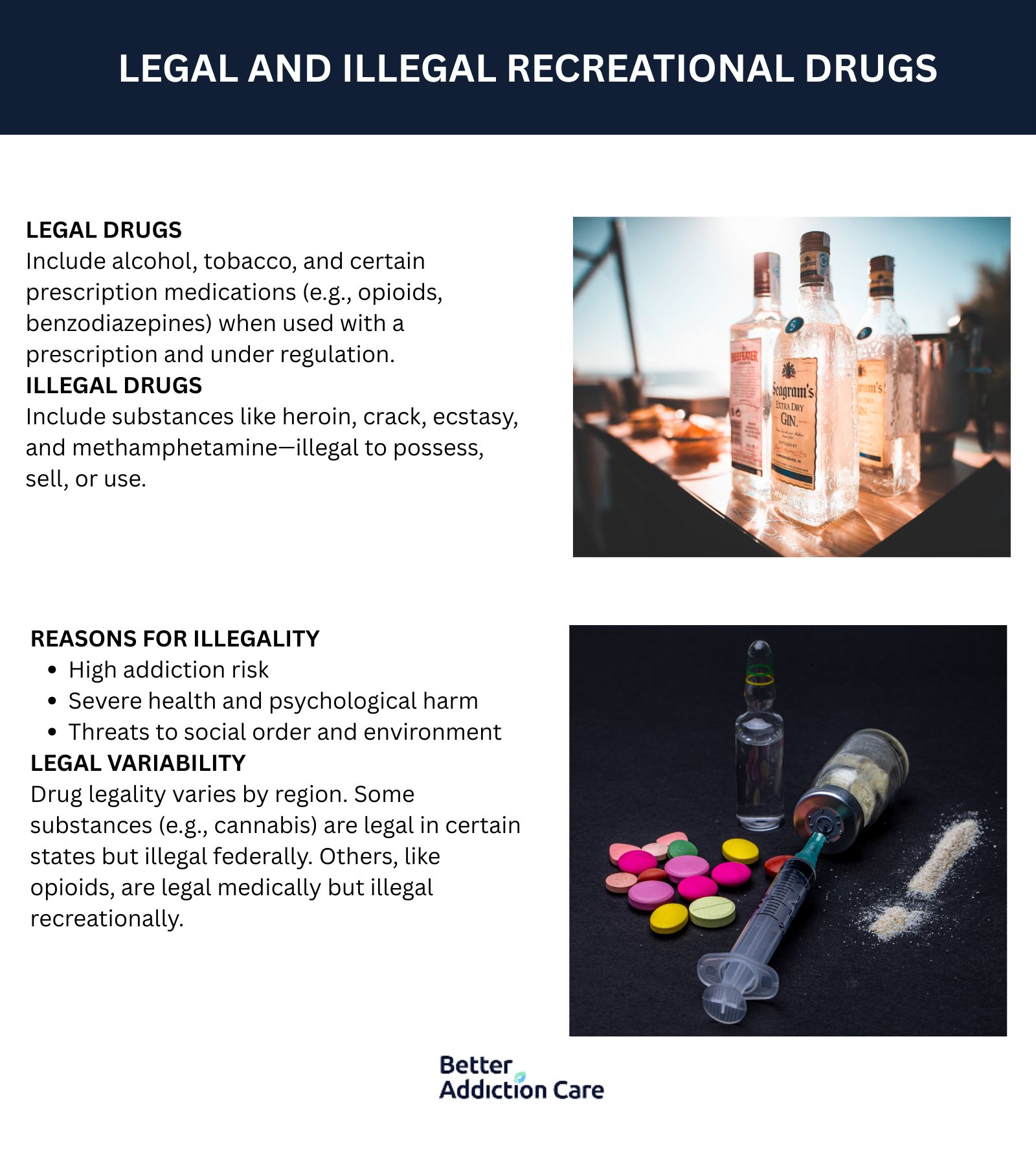
Recreational drug use is a sensitive and complex issue that many struggle with in silence. Recreational drugs are substances you consume primarily for pleasure, enjoyment, or non-medical purposes that range from legal compounds like caffeine and alcohol to illegal substances such as heroin and cocaine, potentially leading to dependency or addiction with continued use.
Recreational drug use is a sensitive and complex issue that many struggle with in silence. Recreational drugs are substances you consume primarily for pleasure, enjoyment, or non-medical purposes that range from legal compounds like caffeine and alcohol to illegal substances such as heroin and cocaine, potentially leading to dependency or addiction with continued use.
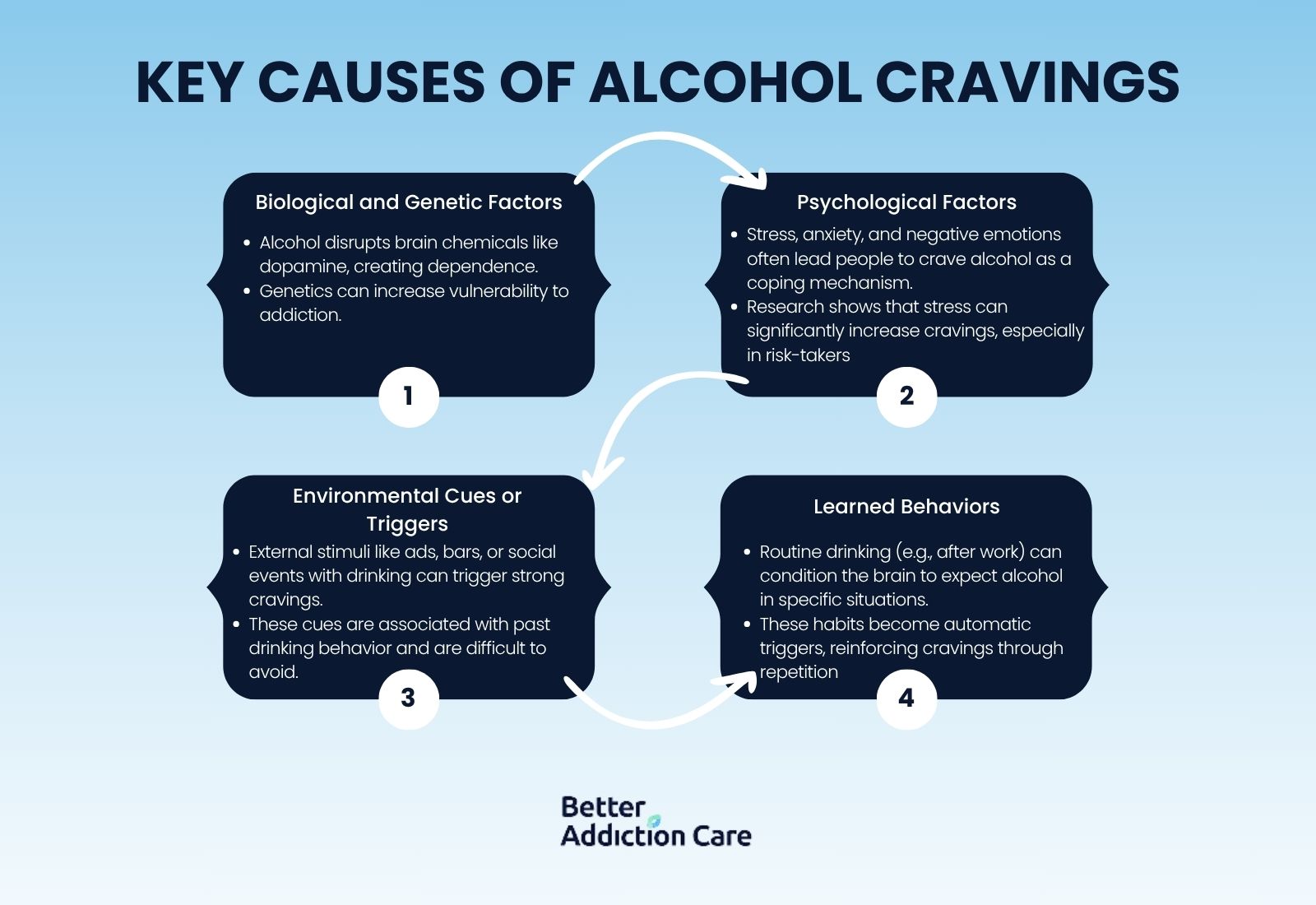
Alcohol cravings are intense urges to drink, common in those with alcohol dependence. Among U.S. adults, 17% binge drink and 6% drink heavily, with nearly all heavy drinkers also engaging in binge drinking. They cause physical symptoms like restlessness and sweating, and psychological symptoms like intense emotions. These episodes last 15-20 minutes and are more frequent in early recovery, contributing to the fact that over 90% of adults who drink excessively report binge drinking. Internal emotions and external alcohol-related cues trigger them, as per the CDC.
Alcohol cravings are intense urges to drink, common in those with alcohol dependence. Among U.S. adults, 17% binge drink and 6% drink heavily, with nearly all heavy drinkers also engaging in binge drinking. They cause physical symptoms like restlessness and sweating, and psychological symptoms like intense emotions. These episodes last 15-20 minutes and are more frequent in early recovery, contributing to the fact that over 90% of adults who drink excessively report binge drinking. Internal emotions and external alcohol-related cues trigger them, as per the CDC.
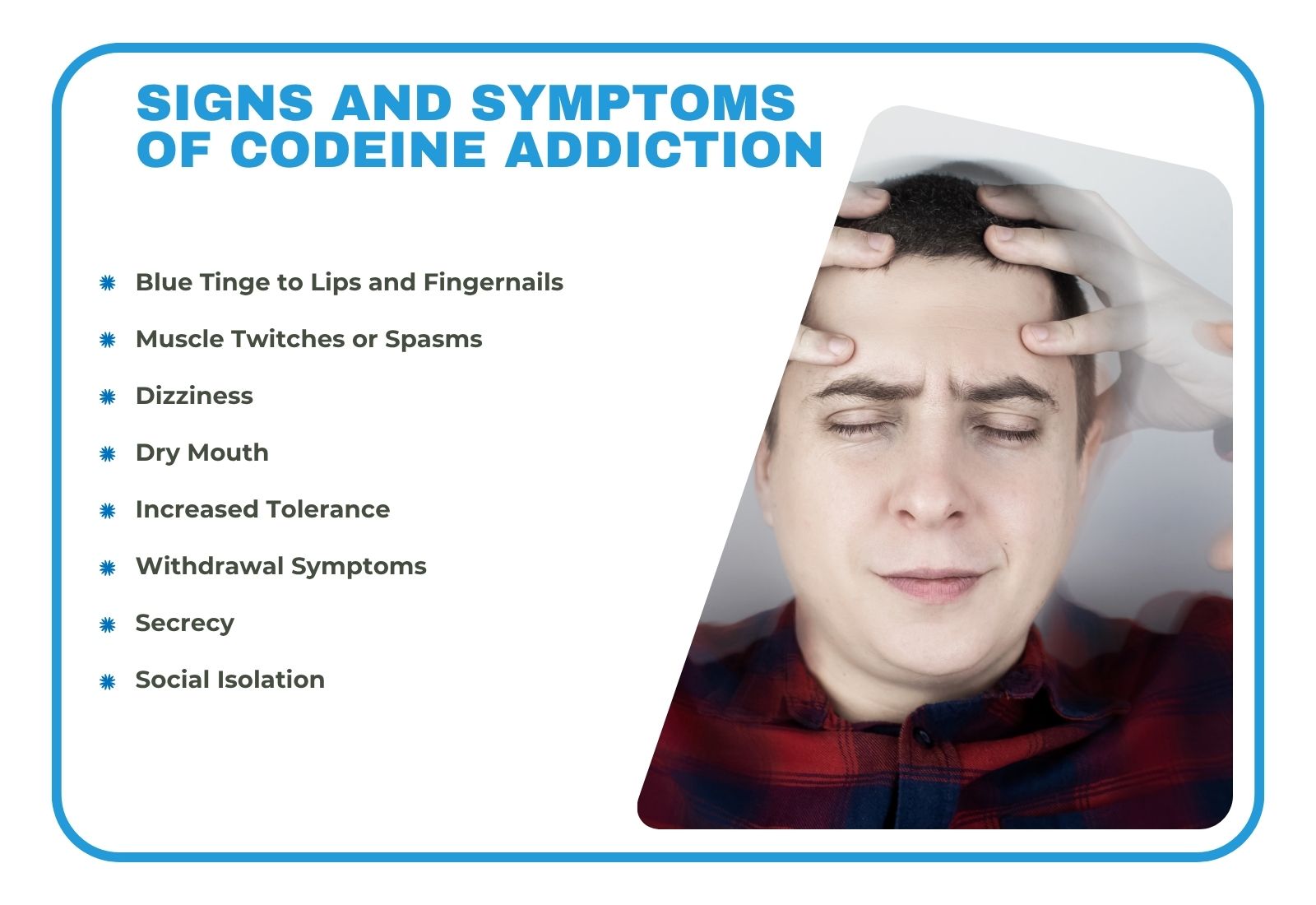
Codeine addiction is a complex medical condition that occurs due to both physical and psychological dependence on opioid medication. Similar to morphine and hydrocodone, codeine leads you to take higher doses repeatedly to achieve pain relief, increasing the risk of addiction and its associated health issues.
Codeine addiction is a complex medical condition that occurs due to both physical and psychological dependence on opioid medication. Similar to morphine and hydrocodone, codeine leads you to take higher doses repeatedly to achieve pain relief, increasing the risk of addiction and its associated health issues.
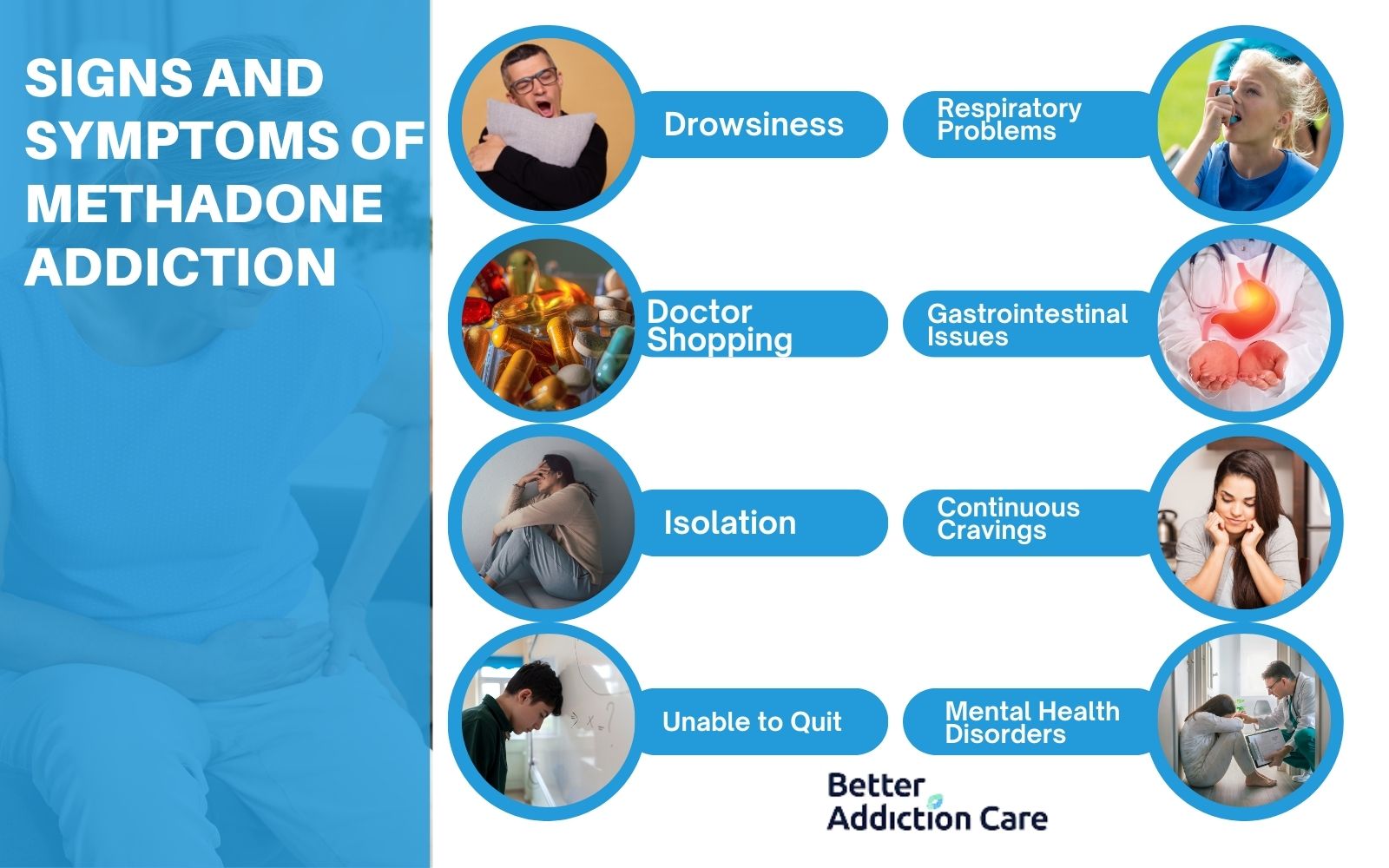
In 2017, 3.2 million Americans aged 12 and older struggled with methadone addiction, and 3,000 lives were lost to overdose, as per the National Center for Health Statistics (NCHS). Methadone is meant to help with opioid recovery, but without proper supervision, it leads to addiction. This kind of dependence affects both the body and mind, making everyday life feel overwhelming. If you're facing this, you're not alone—help is possible, and recovery is within reach.
In 2017, 3.2 million Americans aged 12 and older struggled with methadone addiction, and 3,000 lives were lost to overdose, as per the National Center for Health Statistics (NCHS). Methadone is meant to help with opioid recovery, but without proper supervision, it leads to addiction. This kind of dependence affects both the body and mind, making everyday life feel overwhelming. If you're facing this, you're not alone—help is possible, and recovery is within reach.
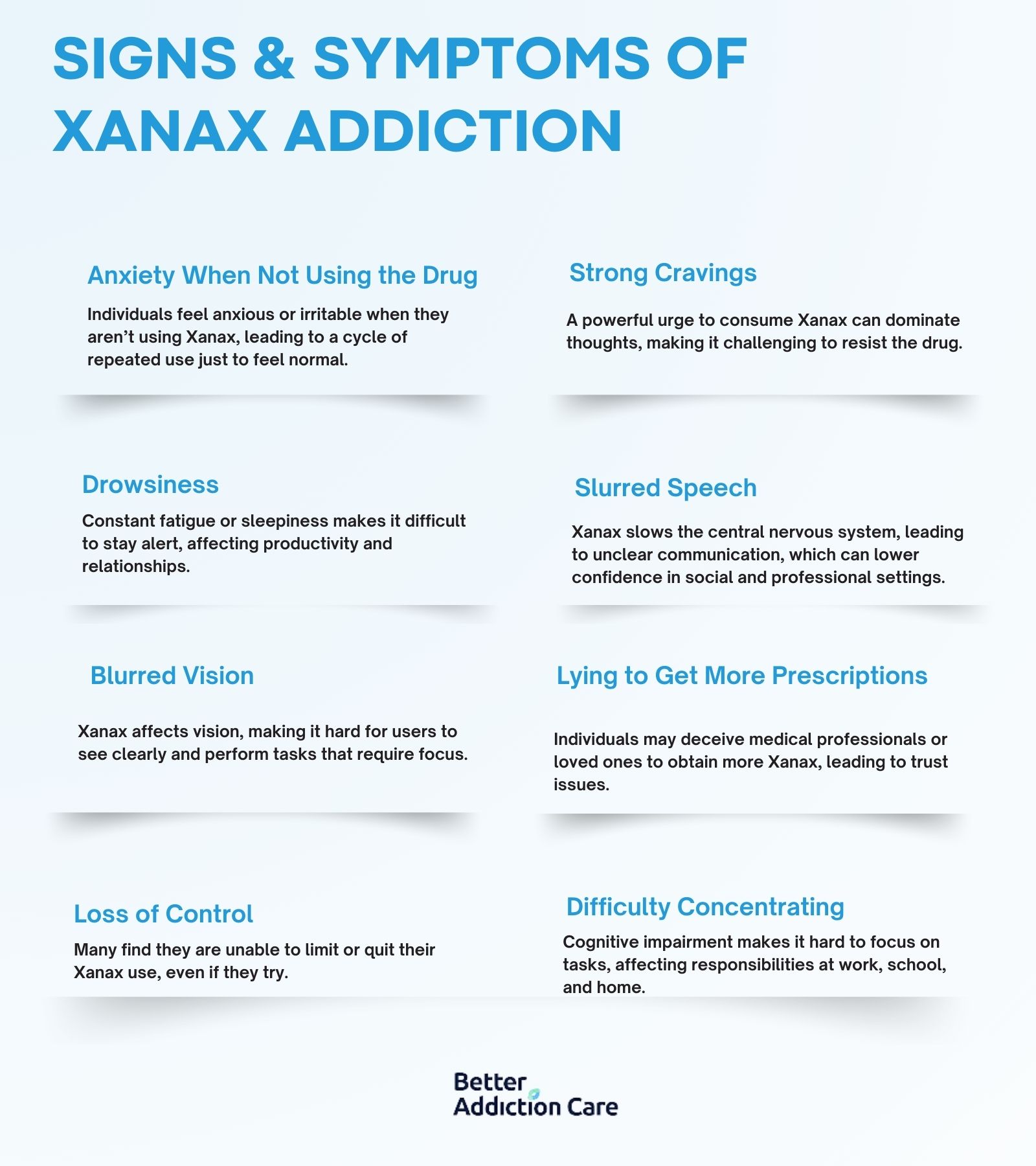
1 in every 311 emergency department visits related to prescription misuse involves alprazolam. This highlights the seriousness of Xanax (alprazolam) addiction, which starts when people take more than prescribed or use it without a prescription, leading to abuse. Alprazolam's widespread availability, with over 48 million prescriptions in the United States in 2013, combined with its unique pharmacological properties, creates a perfect storm for misuse, leaving devastated lives and families in its wake.
1 in every 311 emergency department visits related to prescription misuse involves alprazolam. This highlights the seriousness of Xanax (alprazolam) addiction, which starts when people take more than prescribed or use it without a prescription, leading to abuse. Alprazolam's widespread availability, with over 48 million prescriptions in the United States in 2013, combined with its unique pharmacological properties, creates a perfect storm for misuse, leaving devastated lives and families in its wake.
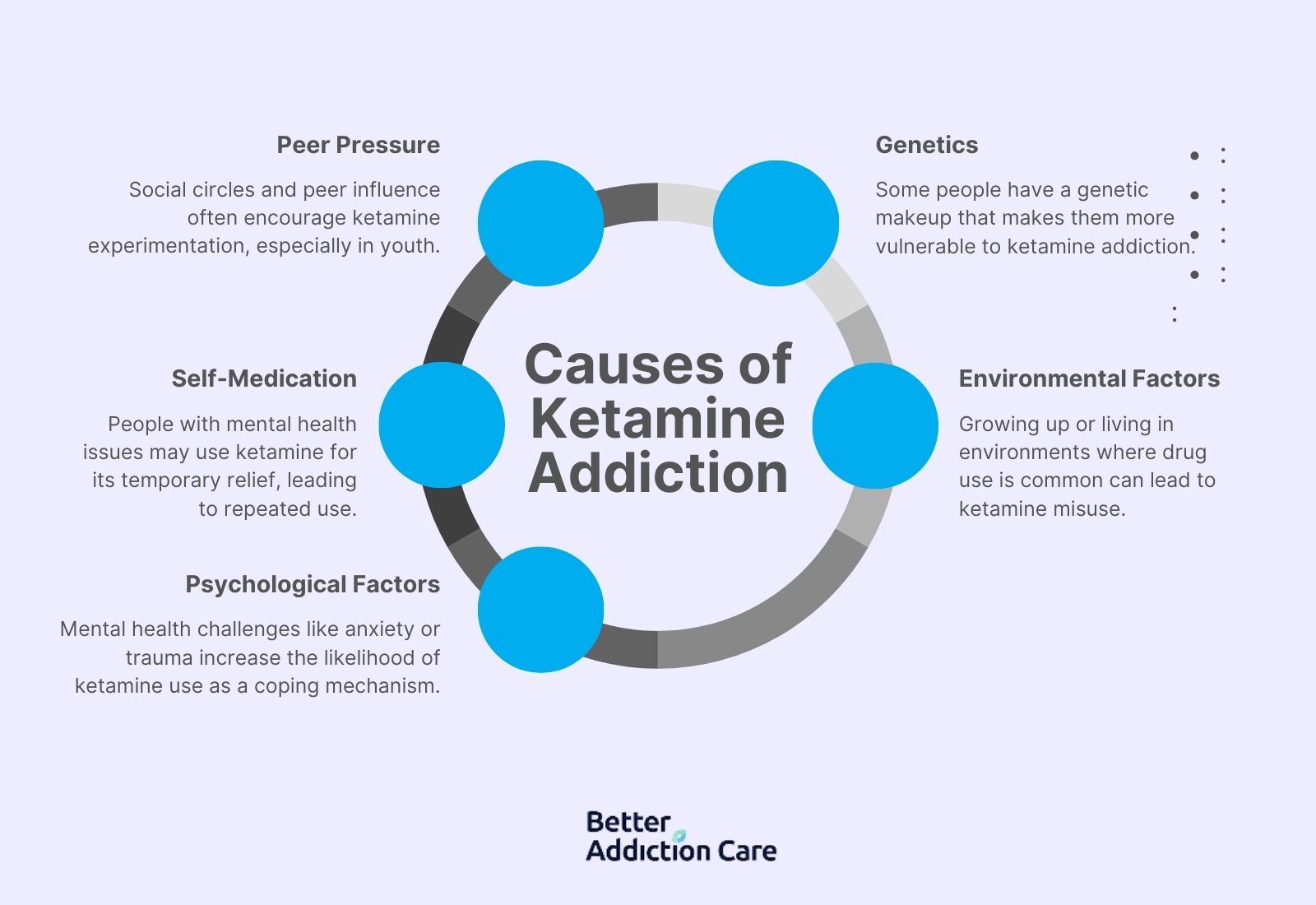
Ketamine addiction is the dependence on ketamine, a powerful anesthetic often misused for its hallucinogenic effects. Causes of ketamine addiction include recreational use, mental health disorders, or self-medicating for trauma or depression.
Ketamine addiction is the dependence on ketamine, a powerful anesthetic often misused for its hallucinogenic effects. Causes of ketamine addiction include recreational use, mental health disorders, or self-medicating for trauma or depression.
